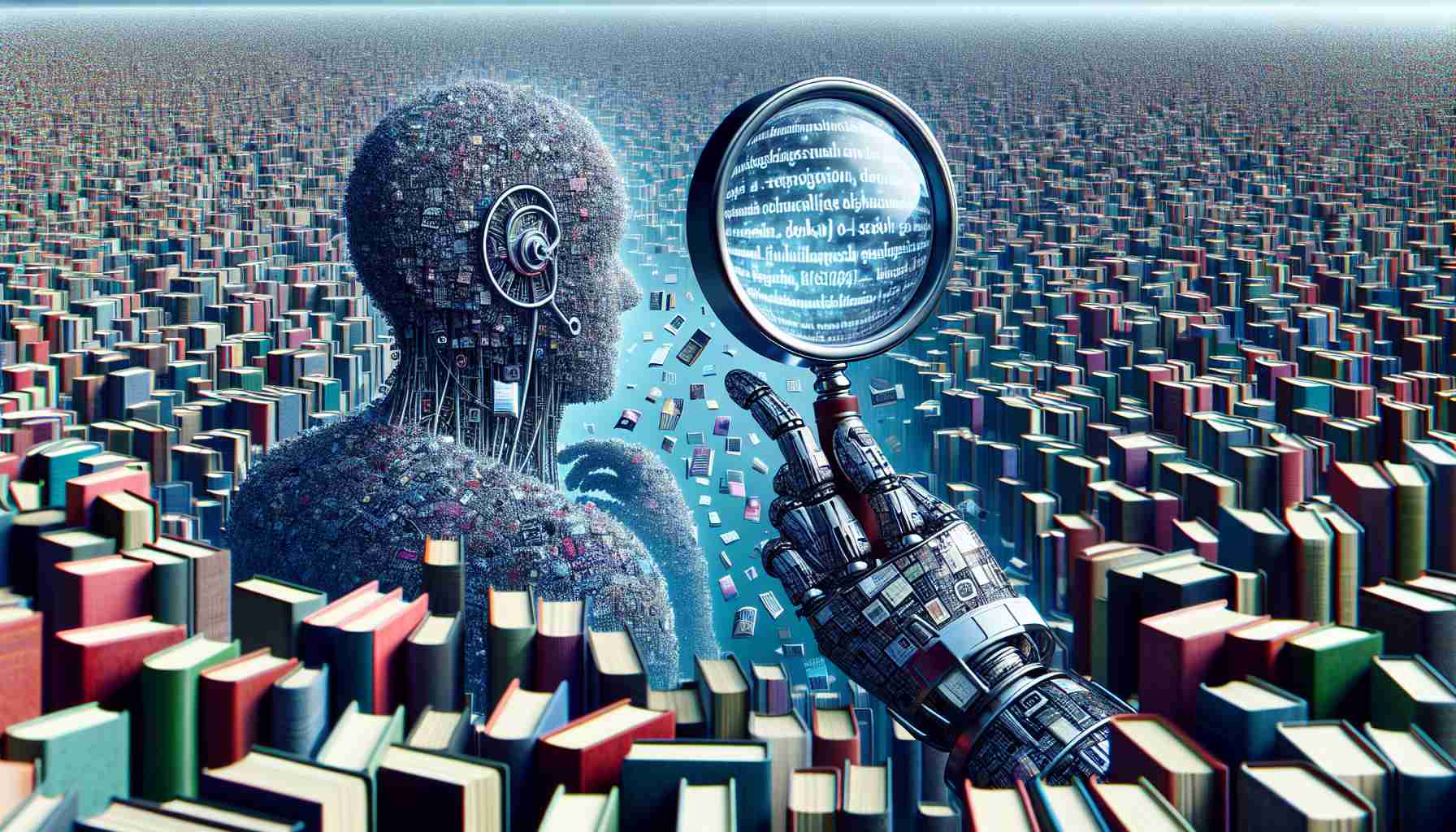Amazon.com has implemented new measures to combat the increasing problem of scam books on its platform. In recent months, there has been a rise in the number of books generated by artificial intelligence (AI) that attempt to deceive readers and steal sales from legitimate authors.
According to Mary Rasenberger, CEO of the Authors Guild, scam books on Amazon have been a long-standing issue. However, the problem has intensified recently, with almost every new book having a companion book that tries to imitate and capitalize on its success.
One author, Marie Arana, discovered this firsthand when she found a book on Amazon titled “America’s Largest and Least Understood Minority. A Summary of Latinoland” right below the cover of her book, “LatinoLand: A Portrait of America’s Largest and Least Understood Minority.” The summary book was written by someone named Clara Bailey and turned out to be one of many such summaries published by Bailey on Amazon.
Experts like Jane Friedman, a writer and publishing industry analyst, suggest that AI-generated scam books are often characterized by low-quality writing that is easily recognizable. The writing lacks the distinct human touch and feels generic. As Friedman puts it, “It just feels like a human didn’t write these.”
To address this issue, Amazon has taken steps to identify and remove AI-generated content. Last year, the company introduced a policy requiring publishers using Kindle Direct Publishing to disclose whether their content is AI generated. Additionally, there is now a limit on the number of titles that can be published in a day. Lindsay Hamilton, an Amazon spokesperson, emphasized that the company is actively preventing the listing and removing books that violate these guidelines.
While Amazon’s efforts are commendable, Rasenberger points out that publishers of scam books are getting more sophisticated, using advanced AI tools to quickly generate low-quality content. By the time Amazon detects and removes these books, the publishers have already made money and move on to new tactics.
The impact of AI-generated scam books goes beyond financial loss for authors. It also tarnishes their reputation. Friedman experienced this firsthand when she discovered books about publishing claiming to be written by her, when in fact she had no association with them. This type of deception can harm an author’s credibility and trust among readers.
As the battle against AI-generated scam books continues, it is crucial for platforms like Amazon to stay vigilant and adapt to new methods employed by publishers of such content. By implementing stricter guidelines and using advanced AI detection systems, the platform can protect both authors and readers from falling victim to these deceptive practices.
FAQ
What are scam books?
Scam books are books that are generated by artificial intelligence (AI) with the intention of deceiving readers and stealing sales from legitimate authors. These books often imitate successful titles, offering low-quality content that is easily recognizable as AI generated.
How is Amazon combating scam books?
Amazon has implemented measures to combat scam books on its platform. Publishers using Kindle Direct Publishing are now required to disclose whether their content is AI generated. There is also a cap on the number of titles that can be published in a day. Amazon actively prevents the listing and removes books that violate these guidelines.
What is the impact of AI-generated scam books on authors?
AI-generated scam books can harm an author’s reputation and credibility. Readers may encounter low-quality content falsely attributed to an author, leading to a loss of trust. This reputational harm can affect an author’s sales and opportunities for future endeavors.
How are AI-generated scam books harmful to readers?
Readers may unknowingly purchase and read AI-generated scam books, expecting quality content but receiving generic and poorly written material. This can result in a poor reading experience and dissatisfaction with the book, potentially undermining their trust in other books and authors.
Definitions:
– Scam books: Books that are generated by artificial intelligence (AI) with the intention of deceiving readers and stealing sales from legitimate authors.
FAQ:
1. What are scam books?
Scam books are books that are generated by artificial intelligence (AI) with the intention of deceiving readers and stealing sales from legitimate authors. These books often imitate successful titles, offering low-quality content that is easily recognizable as AI generated.
2. How is Amazon combating scam books?
Amazon has implemented measures to combat scam books on its platform. Publishers using Kindle Direct Publishing are now required to disclose whether their content is AI generated. There is also a cap on the number of titles that can be published in a day. Amazon actively prevents the listing and removes books that violate these guidelines.
3. What is the impact of AI-generated scam books on authors?
AI-generated scam books can harm an author’s reputation and credibility. Readers may encounter low-quality content falsely attributed to an author, leading to a loss of trust. This reputational harm can affect an author’s sales and opportunities for future endeavors.
4. How are AI-generated scam books harmful to readers?
Readers may unknowingly purchase and read AI-generated scam books, expecting quality content but receiving generic and poorly written material. This can result in a poor reading experience and dissatisfaction with the book, potentially undermining their trust in other books and authors.
Related link: The Authors Guild
The source of the article is from the blog karacasanime.com.ve

